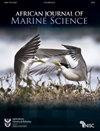纳米比亚南部钻石开采形成的沿海湿地池塘生态。3.鱼
IF 1.4
4区 生物学
Q3 MARINE & FRESHWATER BIOLOGY
引用次数: 0
摘要
纳米比亚南部的钻石开采形成了海堤,可以阻挡海洋,但海水会溢出或渗透到陆地挖掘区,形成了无数面积达38万平方米的沿海池塘。这些池塘的年龄跨度为1-40年,最古老的池塘位于北部,较年轻的池塘位于中部和南部地区。我们调查了海洋鱼类对这些采水池的占用情况。池塘提供了有遮蔽的、温暖的、营养丰富的环境,但在10-12年后会变得高盐。池塘中主要有西海岸的steenbras litognathus aureti和南部的乌鱼Chelon richardsonii,其他七种鱼类数量较少,九种都是海洋鱼类。因此,鱼类区系已经退化,但与该地区周期性关闭的河口区系相似。两种优势物种的体型组成和性腺发育表明,它们可能至少在较年轻的池塘中繁殖。然而,在更古老、高盐度的北部池塘中,金色乳杆菌通过繁殖体转变为完全雌性种群,从而阻止了在那里繁殖。在北部池塘,这两个物种的身体状况都很低,而在南部池塘,肠道饱腹度最高。这两个物种在池塘中的生长都比在海里快,但在最初的快速生长后,L.aureti达到了一个平台,表明此后发育迟缓。在池塘里,Chelon richardsonii的体型比在海洋里大。在高盐度出现之前的10-12年里,池塘是鱼类的合适栖息地。它们不是河口,因为它们的淡水输入很少,但它们确实创造了与封闭河口相对应的条件,而这些河口在干旱的海岸线上本来就很稀缺。然而,为了实现保育功能,海鱼必须返回大海,否则池塘就会成为“生态陷阱”。本文章由计算机程序翻译,如有差异,请以英文原文为准。
The ecology of coastal wetland ponds created by diamond mining in southern Namibia. 3. Fish
Diamond mining in southern Namibia creates seawalls that hold the ocean at bay, yet seawater overwashes or seeps through to fill landward excavated areas, forming numerous coastal ponds that reach 380 000 m2. These ponds span ages of 1–40 years, with the oldest ponds lying in the north, and the younger ponds in the central and southern areas. We investigated occupation of these mining ponds by marine fishes. The ponds offer sheltered, warm, nutrient-enriched environments, but become hypersaline after 10–12 years. The ponds contained predominantly west coast steenbras Lithognathus aureti and southern mullet Chelon richardsonii, with smaller numbers of seven other fish species, and all nine species being marine. The ichthyofauna was thus depauperate, but similar to that of periodically closed estuaries in the region. The size composition and gonadal development of both predominant species suggest they may breed in at least the younger ponds. However, in older, hypersaline, northern ponds, L. aureti transitions into an entirely female population via protandry, precluding breeding there. Body condition was low for both species in the northern ponds, and gut fullness greatest in the southern ponds. Growth of both species was faster in the ponds than in the sea, but after initially fast growth, L. aureti reached a plateau, suggesting stunting thereafter. Chelon richardsonii attained larger sizes in the ponds than in the ocean. For 10–12 years before hypersalinity sets in, the ponds constitute suitable habitat for fish. They are not estuaries as they have minimal freshwater input, but they do create conditions corresponding to closed estuaries that are otherwise scarce along this arid coastline. However, for a nursery function to be realised, the marine fish must return to the sea or else the ponds become an ‘ecological trap’.
求助全文
通过发布文献求助,成功后即可免费获取论文全文。
去求助
来源期刊

African Journal of Marine Science
生物-海洋与淡水生物学
CiteScore
2.60
自引率
16.70%
发文量
17
审稿时长
6-12 weeks
期刊介绍:
The African (formerly South African) Journal of Marine Science provides an international forum for the publication of original scientific contributions or critical reviews, involving oceanic, shelf or estuarine waters, inclusive of oceanography, studies of organisms and their habitats, and aquaculture. Papers on the conservation and management of living resources, relevant social science and governance, or new techniques, are all welcomed, as are those that integrate different disciplines. Priority will be given to rigorous, question-driven research, rather than descriptive research. Contributions from African waters, including the Southern Ocean, are particularly encouraged, although not to the exclusion of those from elsewhere that have relevance to the African context. Submissions may take the form of a paper or a short communication. The journal aims to achieve a balanced representation of subject areas but also publishes proceedings of symposia in dedicated issues, as well as guest-edited suites on thematic topics in regular issues.
 求助内容:
求助内容: 应助结果提醒方式:
应助结果提醒方式:


